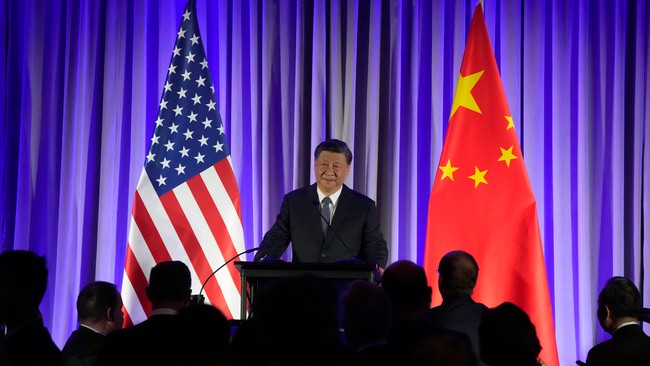
Before we get to the answer, the question looks less academic by the hour. Donald Trump has already declared that he wants a couple of weeks to decide whether a US strike on Fordow using GBU-57 bunker busters would be required to end the Iranian nuclear-weapons development threat. Trump insists he prefers Iran to surrender on those activities without resort to military action, but they don’t seem inclined to capitulate:
🚨🚨🚨BREAKING: Talks with Iran in Geneva today have failed. Iran continues to REJECT giving up its ability to make nuclear weapons & the nuclear fuel cycle. Asked by WSJ if Iran will negotiate further with the U.S., Tehran’s FM says “NO.”
— Josh Block (@JoshBlockDC) June 20, 2025
The Europeans claimed publicly that the Iranians still want to talk, but …
A meeting between Iran’s foreign minister and top European diplomats on Friday yielded hopes of further talks but no indication of any immediate concrete breakthrough, a week after the crisis centered in the Iranian nuclear program erupted into war between Israel and Tehran.
Foreign ministers from Britain, France and Germany, as well as the European Union’s foreign chief, emerged from talks at a Geneva hotel about 3 1/2 hours after talks with Iran’s Abbas Araghchi started.
It was the first face-to-face meeting between Western and Iranian officials since the start of the conflict.
“We leave the room with the impression that the Iranian side is fundamentally ready to continue talking about all important issues,” German Foreign Minister Johann Wadephul said.
“Iran wants to keep talking” is not the good news that this spin suggests. Iran has kept talking for 20-plus years, hoping to stall the West until it can declare Iran a nuclear-weapons power by fait accompli. Even as Israeli jets fly missions at will in their airspace and destroy their nuclear-development infrastructure, the Iranians will not budge on enrichment or on their ballistic missiles and terrorist operations. The reason that Abbas Araghchi won’t talk with the US is that Trump made it clear that there’s no point without concessions on all fronts.
Trump got the real message from Iranian intransigence, even if the Iranians aren’t getting the message about the US refusal to play along with Iranian games any longer:
U.S. F-22 jets have left RAF Lakenheath, UK, bound for Muwaffaq Salti Air Base in Jordan, supported by KC-135 and KC-46 tankers. pic.twitter.com/tkrrpMGhBw
— Mike (@Doranimated) June 20, 2025
Anyone see where our B-2 Stealth bomber squadron is in the world lately? The F-22s would be a pretty good choice for fighter escorts, although so would F-35s and pretty much every other advanced fighter in our inventory. That’s especially true with Iranian air defenses in northwestern Iran being all but eliminated.
With all that in mind, the New York Times turned its attention to China, the biggest partner Iran has in the world. Or so everyone thought until this week, when Beijing got uncharacteristically silent about the demolition of Iran’s home defenses by the Israeli air force. Would that change if Trump directly intervened with military action against Fordow?
Ali Khamenei better not get his hopes up, the NYT advises:
But as President Trump openly ponders deploying American forces to join Israel in attacking Iran, the limits of China’s clout in the region are coming into focus.
China has much to lose from a runaway conflict. Half of the country’s oil imports move in tankers through the Strait of Hormuz on Iran’s southern coast. And Beijing has long counted on Tehran, its closest partner in the region, to push back against American influence.
But despite those strategic interests, China, which has little sway over the Trump administration, is unlikely to come to Iran’s defense militarily, especially if the United States gets involved.
“The reality is they don’t actually have the capability to insert Chinese forces to defend Iran’s installations,” said Zack Cooper, a senior fellow at the American Enterprise Institute in Washington. “What they would prefer to do is very quietly provide some material support, some rhetorical support and maybe some humanitarian aid.”
It’s not just China’s clout that is being exposed as limited. China is not much further from Fordow than Russia is, relatively speaking. It’s certainly closer to Fordow than the US is, by several thousand kilometers, which is one reason that China has aligned itself with Iran. Both want to push the West out of the region and control it for their own purposes, both military and economic. And yet even after two decades of playing Great Game politics in the region in loose confederation with Vladimir Putin, neither Russia nor Xi Jinping can do much to impact the situation that their main regional strategic ally now faces.
In that sense, the answer to the question asked in the headline could be a single word: Salutary. Regardless of other potential downsides of a strike on Fordow, it could send a very big signal to Beijing about our resolve to keep Taiwan from getting seized by China’s Pacific forces. It will also serve as a belated signal to keep China from destabilizing the Middle East for its own strategic purposes … in large part by exposing their one chosen partner as nothing more than an inept paper tiger.
That’s not a good enough reason on its own to choose the military option here. Iran has already exposed its incompetence and the setback to China’s ambitions in this region. However, it does add another factor to Trump’s decision, which may come a lot sooner than people expect.










